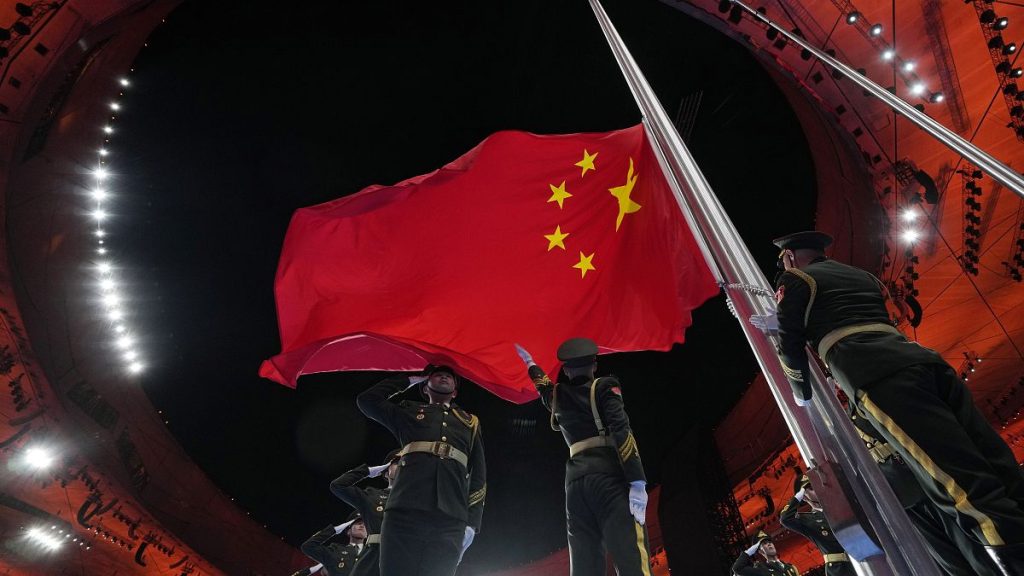Paragraph 1: Resetting Sino-British Relations Amidst Economic and Geopolitical Challenges
The UK is embarking on a renewed effort to recalibrate its relationship with China, driven by economic imperatives and the need for global cooperation on pressing issues. Chancellor of the Exchequer Rachel Reeves’ visit to Beijing marks a significant step in this direction, aiming to revive the China-UK Economic and Financial Dialogue, a platform for bilateral discussions that has been dormant since 2019. This renewed engagement comes amidst a backdrop of strained relations marked by espionage accusations, divergent stances on the Ukraine war, and concerns over human rights in Hong Kong. The UK government, under Prime Minister Keir Starmer, seeks a "pragmatic" approach, recognizing the importance of China’s role in global stability, climate change mitigation, and the transition to clean energy.
Paragraph 2: Economic Priorities and the Pursuit of Growth
Reeves’ visit underscores the UK’s focus on economic growth and strengthening trade ties with the world’s second-largest economy. The Chancellor emphasized the importance of unlocking tangible benefits for British businesses seeking to export to and expand within the Chinese market. This economic pragmatism reflects the government’s commitment to boosting the UK’s lackluster economy and adhering to fiscal responsibility. Reeves’ itinerary includes meetings with representatives of major UK financial institutions and visits to prominent British brands operating in China, highlighting the interconnectedness of the two economies.
Paragraph 3: Navigating Complexities: Balancing Economic Interests with Security and Human Rights Concerns
While prioritizing economic cooperation, the UK government also acknowledges the need to address sensitive issues. Reeves is expected to raise concerns about China’s support for Russia’s war in Ukraine and advocate for human rights and freedoms in Hong Kong. This balancing act reflects the complex nature of the Sino-British relationship, requiring the UK to navigate competing interests. The presence of Bank of England Governor Andrew Bailey and senior executives from leading financial firms in the delegation reflects the multifaceted nature of the discussions, encompassing both economic and financial cooperation alongside geopolitical considerations.
Paragraph 4: A Broader Diplomatic Effort: Building Momentum for Renewed Engagement
Reeves’ visit is part of a wider diplomatic push by the Starmer government to re-engage with China. This renewed effort follows Foreign Secretary David Lammy’s trip to China in October and Prime Minister Starmer’s meeting with Chinese President Xi Jinping during the G20 summit in November. These high-level engagements demonstrate a concerted effort to rebuild trust and foster dialogue between the two nations. The aim is to establish a more stable and predictable relationship, allowing for cooperation on shared challenges while also addressing contentious issues.
Paragraph 5: Domestic Political Landscape and Opposition Scrutiny
The government’s approach to China has faced criticism from the opposition Conservative Party, who raise concerns about prioritizing trade over national security and human rights. This political dynamic highlights the delicate balance the government must strike in pursuing its foreign policy objectives. Recent revelations about alleged Chinese espionage activities within the UK have further amplified these concerns, adding another layer of complexity to the relationship. The government must address these anxieties while simultaneously pursuing its economic and diplomatic goals.
Paragraph 6: The Path Forward: Seeking a Pragmatic and Principled Approach
The UK’s approach to China is defined by a pursuit of pragmatism, recognizing the need for engagement with a major global power while upholding its values and addressing critical concerns. This careful balancing act will require ongoing dialogue, clear communication, and a willingness to address difficult issues head-on. The success of this renewed engagement will hinge on the ability of both sides to find common ground while managing their differences constructively. The future of the Sino-British relationship depends on finding a sustainable path forward that balances economic cooperation with security considerations and the promotion of human rights.

